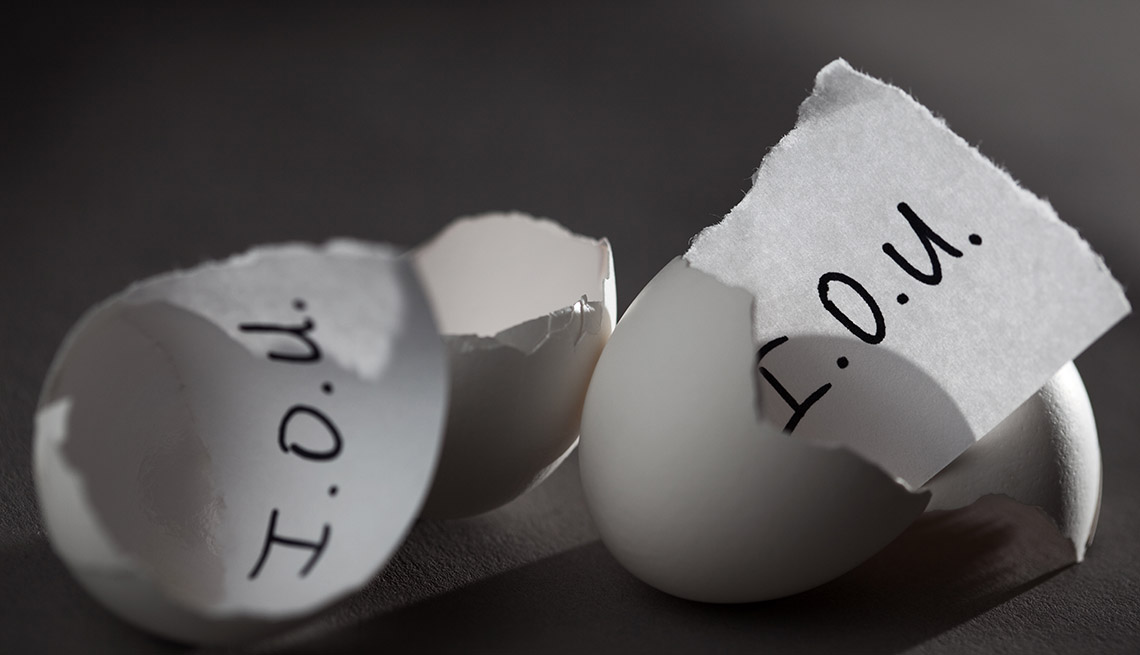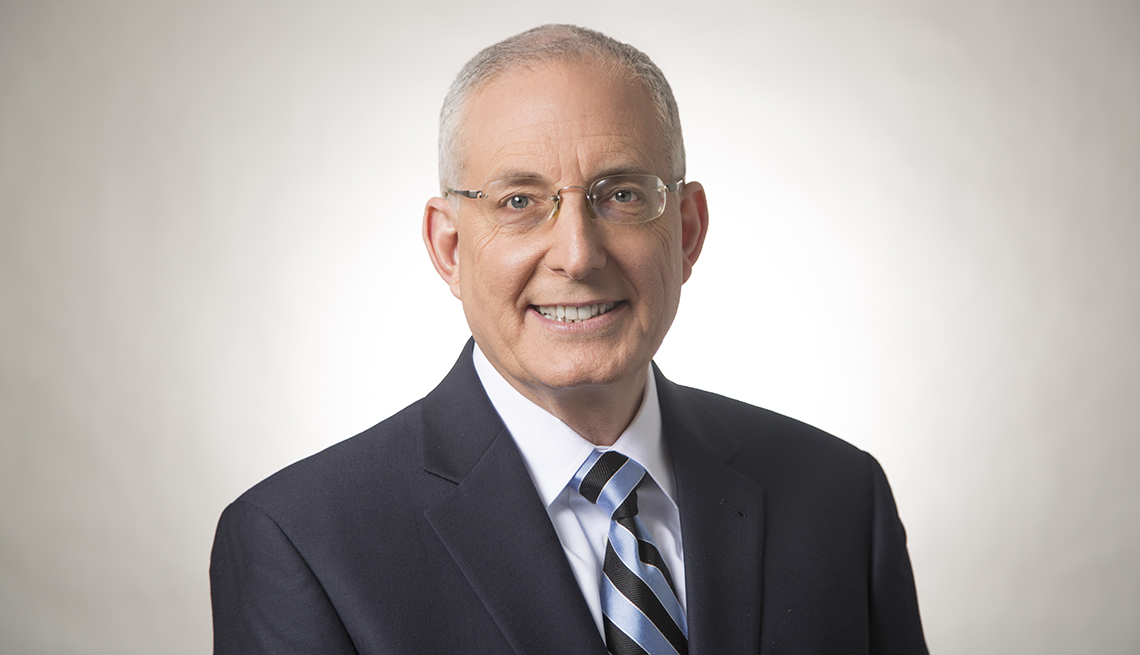How to Take Money From Your Retirement Account Because of Covid-19
It's a last resort, but if you need cash, you have options
Q: I'm 62, single, no children, self-employed. I'm slowly recuperating from COVID, although I'm a long way from recovered.
I have a Roth IRA and a rollover IRA. May I withdraw all of these moneys now, and repay/replace these funds in three years without tax implications? If not, what are the tax implications? Also, is there a way to borrow from my 401(k) without tax implications?
I will be receiving several large payments in the next one to three years, which I will use to repay these funds, if I live long enough.
A: Glad to hear you are recovering. That's the most important thing, and should be your priority. As for withdrawing from your retirement plans, that should be a last resort, because you'll need that money in retirement.
Ask Ed Slott
Confused about IRAs, 401(k)s, Roths, taxes and more related to saving for retirement? Ed has the answers. Email your questions to IRAHelp@aarp.org.
That said, yes, you qualify for a relief provision under the CARES Act called a “coronavirus-related distribution,” or CRD. The law allows affected individuals — which you qualify as — to withdraw up to $100,000 from their retirement accounts in 2020, without the 10 percent early distribution penalty (for those under age 59 1/2). You can repay those funds within three years. The withdrawals are taxable, but the income can be spread over three years.
For example, if you withdraw $60,000 from your IRA as a CRD, you can report $20,000 of income on each of your 2020, 2021 and 2022 tax returns. Or, if you wish, you can elect to report the full $60,000 in one year, 2020, if that would result in a lower tax bill for you. You can also erase the tax bill by repaying the CRD funds within the three years.
You qualify for a CRD if you, your spouse or your dependents were diagnosed with the virus or if you experienced adverse financial consequences as a result of either you, your spouse or a member of your household having a loss of income or being unable to work, among other similar financial factors.
The $100,000 limit applies in aggregate to all of your retirement plans. For example, if you withdraw the full $100,000 from your 401(k), then you cannot withdraw any more from your other retirement plans.
First see if you have other non-retirement assets available to you. If not, then yes, if you need funds now, you can take those as CRDs from your 401(k), IRA or Roth IRA. However, I would not take a CRD from your Roth IRA. It's too valuable. It's growing tax-free, and you don't want to put a dent in that tax-free compounding. That's your most tax-efficient and productive retirement account.
One other point: Your 401(k) does not have to allow CRDs, though most do. If yours does not, you can still withdraw the funds as a hardship 401(k) distribution and then treat them as a CRD on your personal tax return.
You asked about borrowing from your 401(k) (loans are not allowed from IRAs). If your plan allows it, funds borrowed would be tax-free to you, but they must be paid back on schedule or they will become taxable. However, since you say you will have the funds to return the CRDs over three years, you may be better off taking a CRD than getting involved with a 401(k) loan commitment and the resulting repayments and paperwork. With the CRDs, you can repay any amount you wish, on your own schedule, or not. That will work better for you, since you never know what your financial condition will be over the next three years. Hopefully, all will work out for you both financially and health-wise. Get better soon!
AARP Membership -Join AARP for just $12 for your first year when you enroll in automatic renewal
Join today and save 25% off the standard annual rate. Get instant access to discounts, programs, services, and the information you need to benefit every area of your life.
Q: My siblings and I are inheriting an IRA from our mother, which she, in turn, inherited from our brother in 2017.
I have been told two different stories by two different investment firms about how long we have to take all the money from my mother's IRA. One firm says we have up to 10 years to take distributions, and the other says we have to pick up where our mom left off, which is roughly seven and a half years, for our required minimum distributions (RMDs). Can you tell us which is correct?
A: You didn't say, but let's assume your mom died in 2020, since you are asking about this now. If so, then you and your siblings are subject to the new 10-year rule under the SECURE Act, because you are successor beneficiaries (the beneficiary's beneficiaries).
The SECURE Act applies to those who inherit in 2020 or later years, even though your mom inherited your brother's IRA in 2017. Under the SECURE Act, your mom is the original beneficiary, but once she dies, her beneficiaries (that's you and your siblings) are successor beneficiaries and must withdraw the entire balance remaining in this IRA by the end of the 10th year after your mom's death. That would be by the end of 2030.
That's true even though your mom inherited in 2017 and was able to use the so-called “stretch” IRA, which would have allowed her to extend the required minimum distributions (RMDs) over her lifetime. Had you inherited the IRA before the SECURE Act took effect in 2020, you could have continued with her remaining payout schedule. You can't do that anymore, because her death in 2020 falls under the SECURE Act provisions.
However, unlike the stretch IRA, which requires RMDs each year after death, the 10-year rule has no such requirement. It requires only that the entire balance be withdrawn by the end of the 10 years. This leaves you and your siblings some good tax planning flexibility, since you can take any amounts you wish during the 10 years as long as the full amount is withdrawn by the end of the 10 years. For example, you might take more in years where your tax bracket is lower or take no distributions in years where your income is higher.
The only scenario where you would continue your mom's payout schedule is if she died before 2020.
Ed Slott, CPA, is one of the nation's top experts on retirement plans. For more than 30 years, he has educated both consumers and financial advisors on retirement tax-saving strategies. Most recently, he published Ed Slott's Retirement Decisions Guide: 2020 Edition and is the host of several popular public television specials, including his latest, Retire Safe & Secure! With Ed Slott. Visit www.IRAHelp.com to learn more.



